Making research meaningful and accessible to patients: Why patient and public involvement is crucial to designing effective health research studies
Date Monday 6th March 2017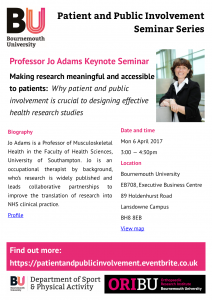
Time 3:00 – 4:30 pm
Location EB708, Executive Business Centre, 89 Holdenhurst Road, Lansdowne Campus, Bournemouth University
As part of the Public and Patient Involvement (PPI) in Research seminar series
Biography
Dr Jo Adams is a Professor of Musculoskeletal Health within the Faculty of Health Sciences, University of Southampton. Jo is an occupational therapist by background. She has led both national and international applied translational research programmes related to developing effective self- management approaches for individuals with musculoskeletal diseases. Her research is widely published and she leads collaborative partnerships to improve the translation of research into NHS clinical practice. She is also an experienced educator having taught health care professionals at pre and post registration level for over 20 years
Book your place now: https://patientandpublicinvolvement.eventbrite.co.uk
Refreshments are available and there will be plenty of time for discussion at the seminar end. Any questions please contact:
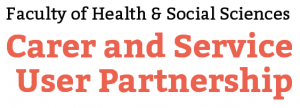
Dr James Gavin
Email jgavin@bournemouth.ac.uk
Phone +44 (0)1202566303
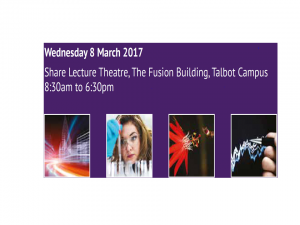 8 MARCH 2017 – only a week away, dont forget to register to attend the BU Annual Postgraduate Conference! Experience a jam packed programme of exciting postgraduate research presentations, addresses from BU key academics, and share experiences with research and masters students from across the whole university…an opportunity not to be missed.
8 MARCH 2017 – only a week away, dont forget to register to attend the BU Annual Postgraduate Conference! Experience a jam packed programme of exciting postgraduate research presentations, addresses from BU key academics, and share experiences with research and masters students from across the whole university…an opportunity not to be missed. 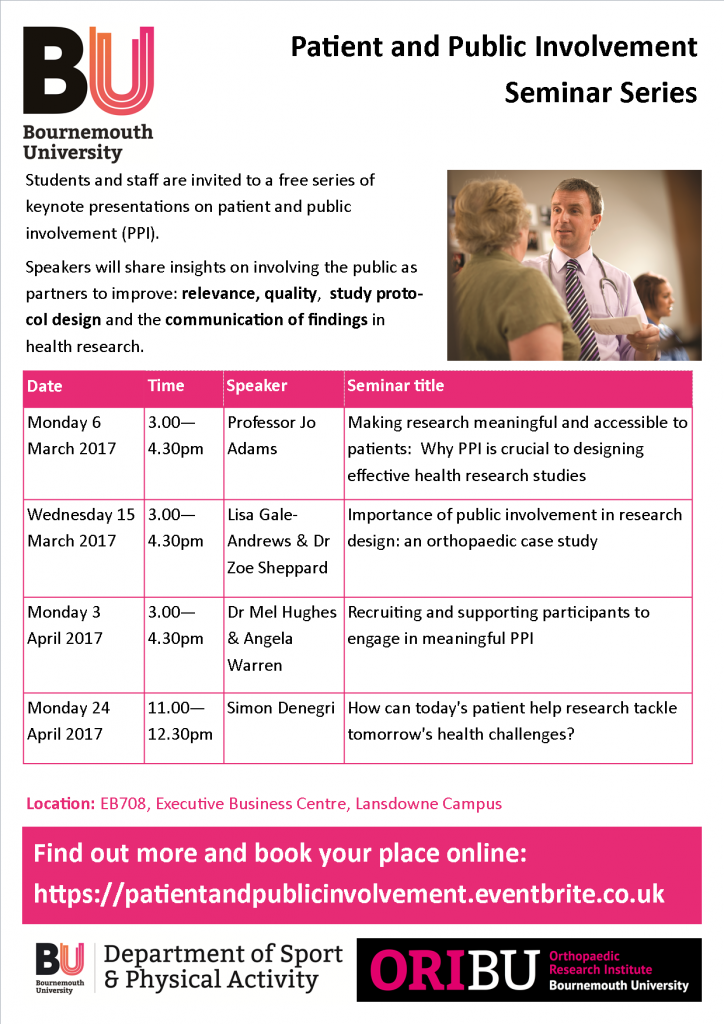


 The Centre for Qualitative Research presents Clare Gordon and Caroline Ellis-Hill
The Centre for Qualitative Research presents Clare Gordon and Caroline Ellis-Hill 
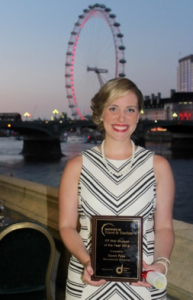
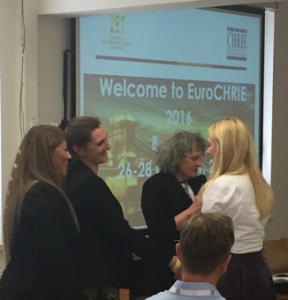


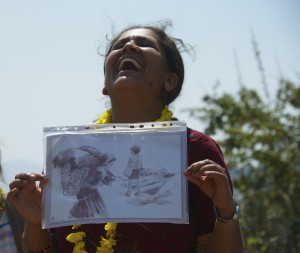

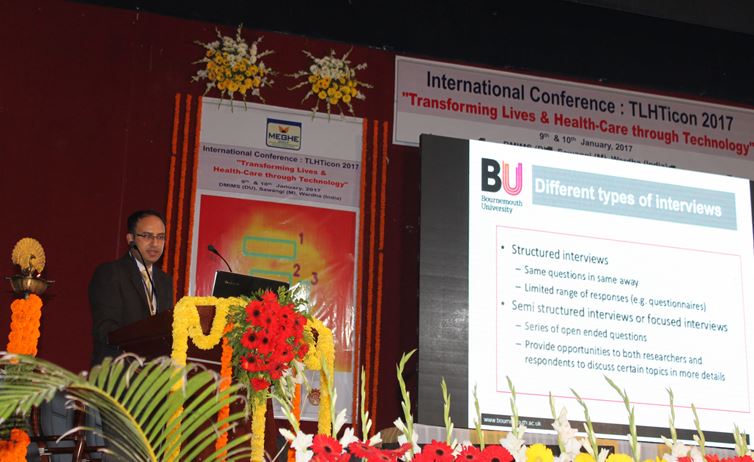
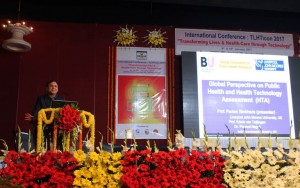
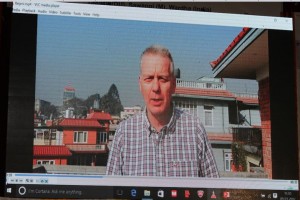

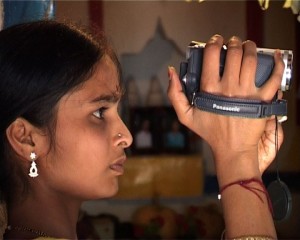













 SPROUT: From Sustainable Research to Sustainable Research Lives
SPROUT: From Sustainable Research to Sustainable Research Lives BRIAN upgrade and new look
BRIAN upgrade and new look Seeing the fruits of your labour in Bangladesh
Seeing the fruits of your labour in Bangladesh Exploring Embodied Research: Body Map Storytelling Workshop & Research Seminar
Exploring Embodied Research: Body Map Storytelling Workshop & Research Seminar Marking a Milestone: The Swash Channel Wreck Book Launch
Marking a Milestone: The Swash Channel Wreck Book Launch ECR Funding Open Call: Research Culture & Community Grant – Application Deadline Friday 12 December
ECR Funding Open Call: Research Culture & Community Grant – Application Deadline Friday 12 December MSCA Postdoctoral Fellowships 2025 Call
MSCA Postdoctoral Fellowships 2025 Call ERC Advanced Grant 2025 Webinar
ERC Advanced Grant 2025 Webinar Update on UKRO services
Update on UKRO services European research project exploring use of ‘virtual twins’ to better manage metabolic associated fatty liver disease
European research project exploring use of ‘virtual twins’ to better manage metabolic associated fatty liver disease